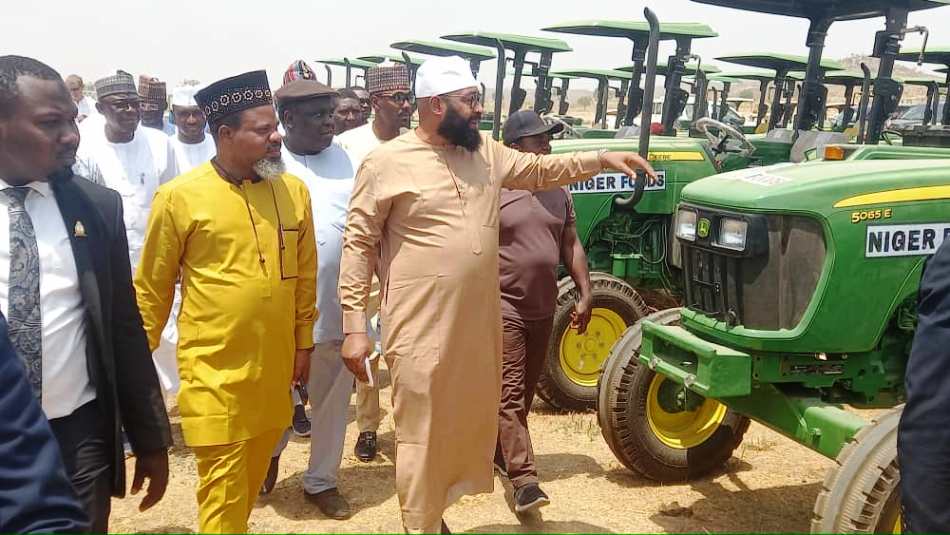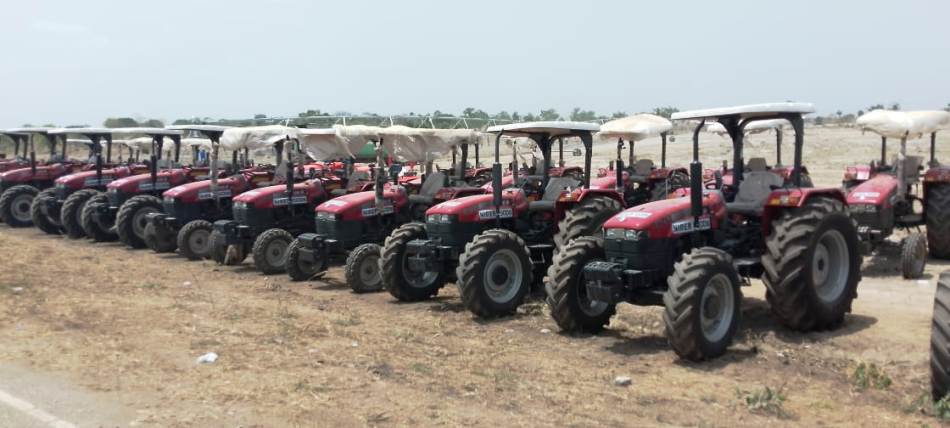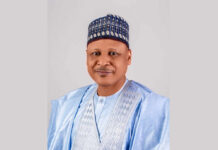By Sampson Ikemitang.
Over the years, successive governments to address the dwindling resources accrued from Agriculture, had implemented various policies and programmes; geared towards increasing food production and reviving agriculture for sustainable growth and development of the nation. For instance, the National Accelerated Food Production Programme (NAFPP), an agricultural extension programme was initiated in 1972 during General Yakubu Gowon regime. The programme was intended to bring about a significant increase in the production of maize, cassava, rice and wheat in the Northern States. It was later replicated in other States of the federation.
Other agricultural development interventions at the time include Operation Feed the Nation (OFN), established by General Olusegun Obasanjo in 1976; the Green Revolution (GR) created by Shehu Shagari in 1980; National Fadama Development Project (NFDP), launched in 1990; the Nigerian Agricultural Land Development Authority (NALDA) established in 1992 and National Special Programme of Food Security (NSPFS), launched in 2002, amongst others.
It will be recalled that before Nigeria’s independence in 1960, agriculture was the mainstay of the nation’s economy. Available data show that the contribution of agriculture to the country’s Gross Domestic Product (GDP), at independence in 1960 stood at 60 per cent. This is typical of developing agrarian nations.
However, soon after the discovery of oil in the 1970s and the eventual ‘oil boom’, agriculture assumed a downward trend. Indeed, between 1970 and 1980, agricultural production stagnated at less than one per cent annual growth rate, at a time when the country’s population growth was between 2.5 to 3.0 per cent per annum.
Suffice it to say that in the recent past, there has been a sharp decline in export crop production while food production increased only marginally, owing to some form of neglect for agriculture. This neglect has been accentuated even in our secondary school curricula where agriculture which was hitherto, mandatory has suddenly become optional for students. The implication therefore is that the domestic food supply had to be augmented through large imports. As such, achieving food security through self-reliance and self-sufficiency for the country, as it were, has remained a pipedream; better still, wishful thinking. This is not good enough for a country that is on the threshold of global competitiveness.
Determined to reverse this ugly trend, turn around the fortunes of the people, and ostensibly return the State to the path of economic recovery and prosperity, the Niger State Governor, Mohammed Umar Bago has made agriculture one of the major focuses of his administration. He believes that the nation’s agricultural sector has enormous potential not only to ensure food availability for the nation but also to lift millions of people out of poverty, thus improving their living conditions.
That explains why the Niger State Government under his headship, has recently procured billions of naira worth of agricultural equipment and has also taken delivery of them, to diversify the agricultural value chain and scale up agricultural production, in line with the Renewed Hope Agenda of President Bola Ahmed Tinubu led administration on food security. Among these agricultural equipment received include 500 large capacity tractors, 500 harvesters of varying capacities, 200 power tillers and 1000 different agricultural and irrigation equipment.
The programme christened ‘Total Agricultural Support Programme’ (TASP) in partnership with Campo Company of Brazil is engaging in a specialized agro support programme with the Niger State Government. The airport city free zone programme which would be the biggest in Africa, according to the governor, would focus on the processing of fresh farm produce such as vegetables, fruits, and dairy products and move them from the State to other States of the federation, as well as exporting to other countries through the zone’s ecosystem.
The Governor made this disclosure recently at the International Airport Minna while conducting National leadership of the Nigerian Union of Journalists (NUJ), Comrade Chris Isiguzo around the newly acquired agricultural equipment by Niger Foods at the airport which has been completed and awaiting official flag-off by President Bola Ahmed Tinubu.
He said the project would prevent people from consuming blood meat but frozen meat as well as discourage the transportation of cattle out of the State. Niger State as we may be aware, sells an average of half a million cattle to Nigerians and people outside Nigeria daily. Therefore, the desire to boost the production of livestock will certainly lead to expansion and eventual diversification of the nation’s foreign exchange earnings, through the production and processing of export crops. The Bago-led administration is committed to providing farm inputs like agrochemicals, high-yielding seeds/seedlings, and irrigation systems not only to government establishments but also to individuals at no cost. This is intended to make agriculture attractive to all and sundry.
According to him, “This is going to be the biggest in Africa. This is an airport-free zone. There is a special agro-processing zone in the airport where you will have fresh vegetables, fruits and foods leaving here for everywhere in Nigeria and abroad”.
Continuing: Bago said, “We are bringing about 140 kilometres of water irrigation to this place from Shiroro Dam, and these are the people that are doing it. They are from outside the country and they are ready for the work. We are bringing 80 megawatts of power to the airport city project and we are going to attract a lot of investment to Niger State”.
“There will be a power holiday for industries that want to set up here. We can give them free-zone energy. We are housing 400 hydropower dams. We subsidize 60 per cent of the total energy consumed in Nigeria.
“So we are asking for 13.5 per cent derivation from the federal government on the power we are generating so that our people can now benefit from what we are doing”, Gov. Bago stated.
On his part, the National President of the Nigerian Union of Journalists (NUJ), Comrade Chris Isiguzo, commended the governor for this laudable initiative, noting that the project would reduce overdependence on oil revenue.
According to him, “If you go around the airport, you can see that it can compete with any other airport in Africa, and that shows that the government has invested so much in this airport, which is supposed to be federal, but the State, through this hardworking governor, has taken it upon itself to embark on this massive work.
His words: “We have looked at the governor’s idea of putting in place an agro-processing zone, a free trade zone if you like, that will operate within the airport, and that is a very great idea, an initiative by the governor. This way, the consumption of red meat and blood meat would have been a thing of the past. This is a very good thing.
“Before now, we were dependent on oil, there was a need to diversify and that is what the governor has done by focusing on agriculture”, he added.
Meanwhile, President Bola Ahmed Tinubu while flagging up the airport city processing zone project and commissioning of the remodelled International airport yesterday in Minna, charged other State Governors to convert all ungoverned spaces into mechanized farming. This, he said, would not only ensure food security for the nation but also generate employment for the teeming youths as well as clear banditry.
Given the foregoing, one can safely conclude without any fear of contradiction that the country will experience a remarkable agricultural revolution, if two-thirds of the States of the federation i.e 24 States with comparative advantage in agriculture, given their expanse of arable land, will dare to venture into mechanized agriculture.
Unarguably, investing in agriculture is the way to go. It will not only create employment and ensure food security for the country but also feed Africa and the rest of the world. Now that Gov. Bago is blazing the trail in agriculture, let other State Governments borrow a leaf from his laudable initiative, intending to lift people out of poverty, thus taking our dear nation to the imaginary land of promise –Eldorado.




Sampson Ikemitang writes from Nigeria Integrated Water Resources Management Commission,
Abuja.






